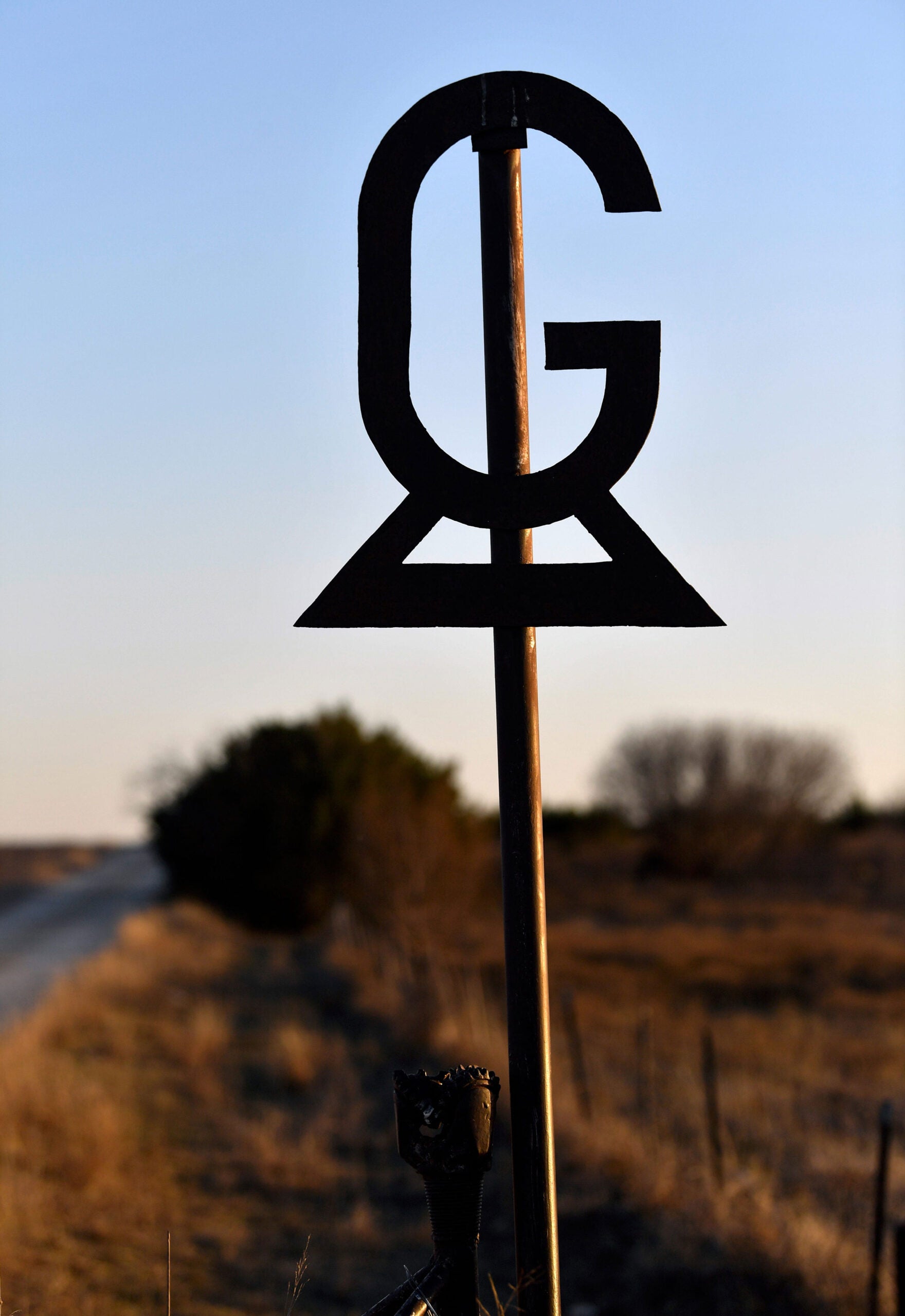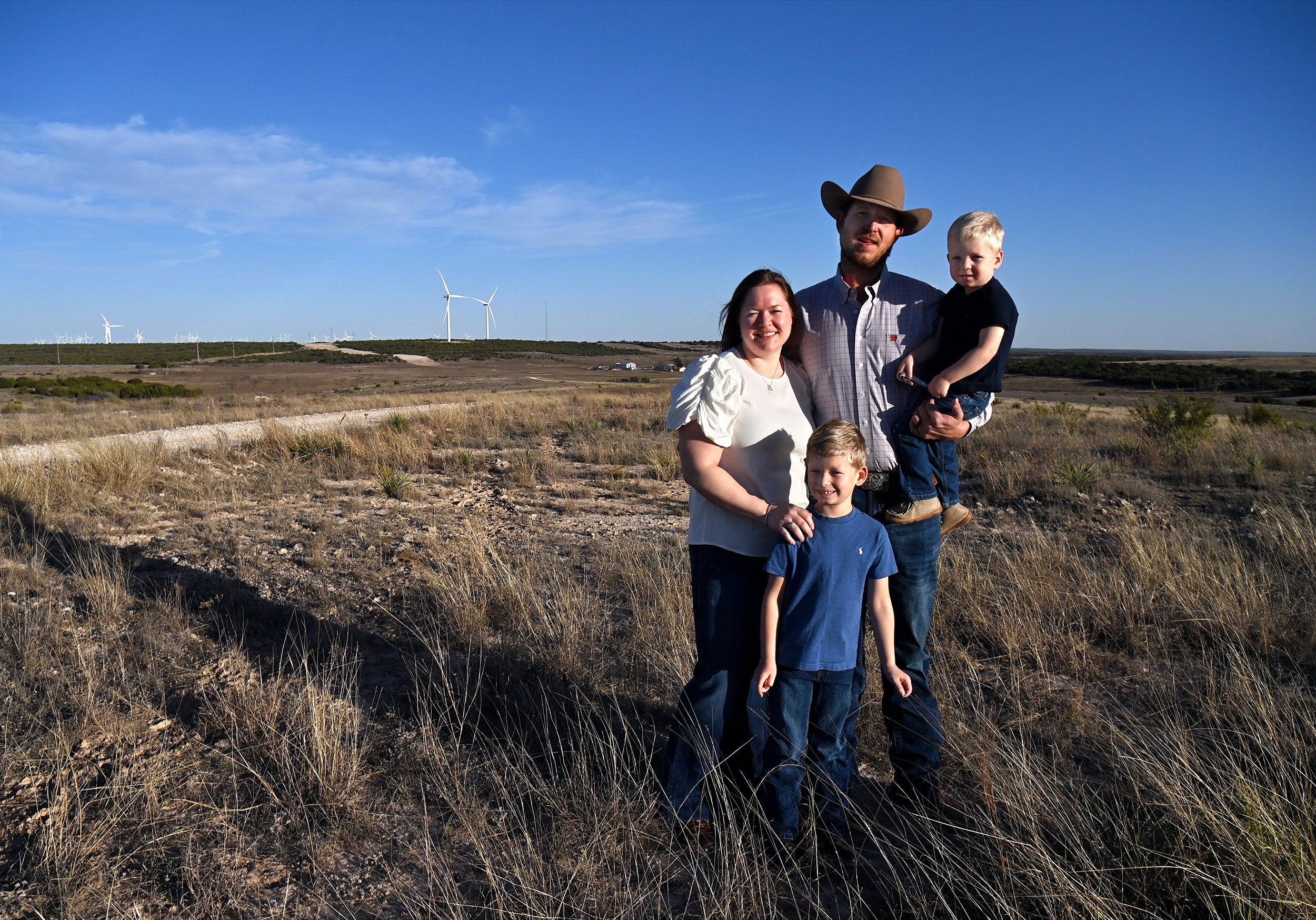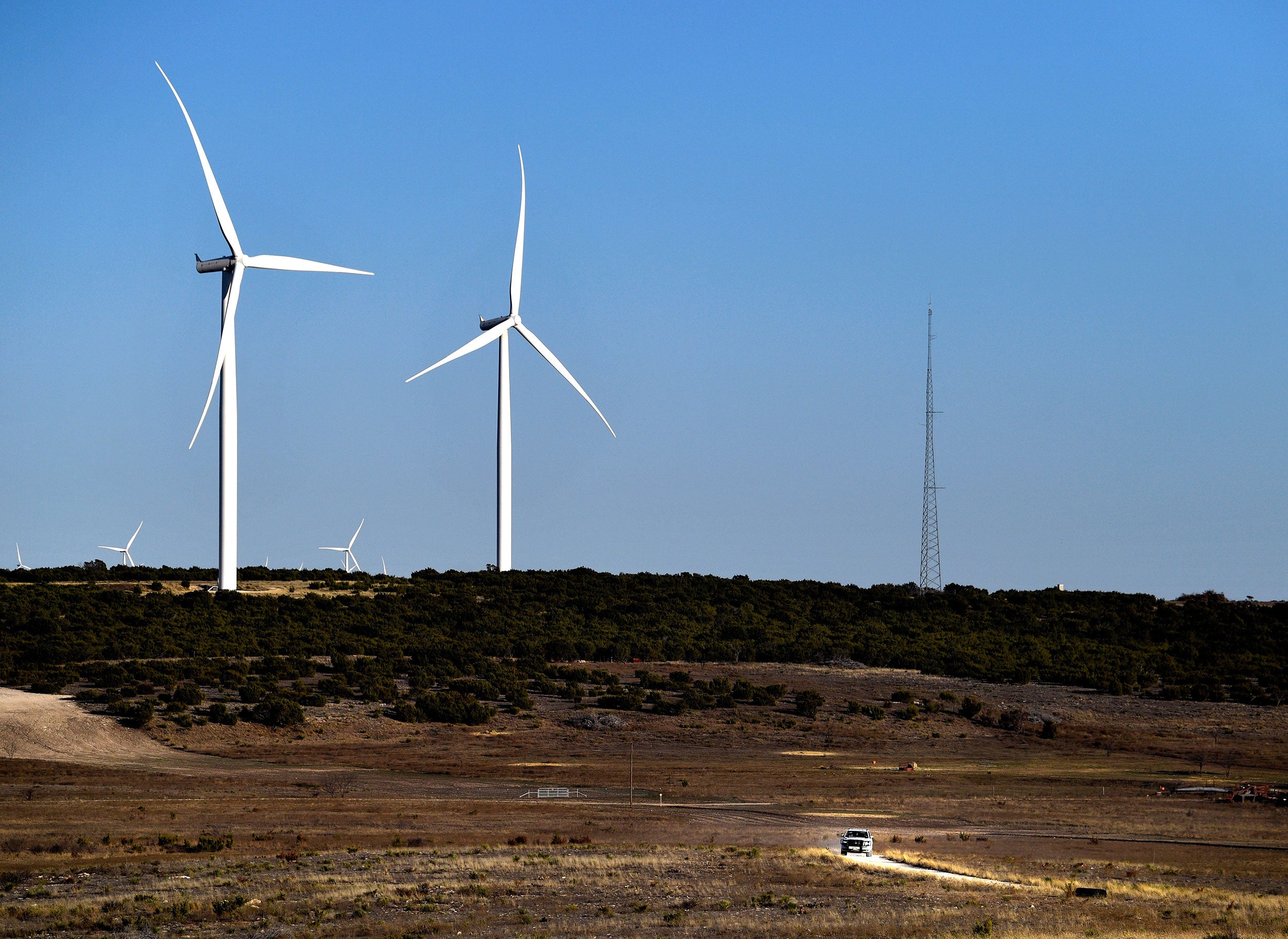NOLAN, Texas — Alexis Williams can’t imagine any other life.
“I love it. I wouldn’t have it any other way,” she said. “I’ve got a long drive every day, a couple times a day, but even still. When COVID hit and the world shut down, our world didn’t really change.”
She and her husband, Hunter, both 34, live about 45 minutes southwest of Abilene, in the hills where wind turbines, cattle, and open spaces define a quiet, perhaps idyllic setting perfect for raising their two little boys, 6-year-old Cole and his brother Easton, 2.
“You know, the life and the freedom that it provides our kids, just to go have little mini adventures on the weekend,” Alexis said. “We’re out here. We don’t have any neighbors anyway. You need a cup of sugar, you’re out of luck.”
They both laughed, and Hunter guessed their nearest neighbor was over 4 miles away.
Keeping the legacy alive
The Williamses were recognized last week as the Ag Family of the Year at the Texas Farm, Ranch & Wildlife Expo.
Standing on a rise overlooking their home half a mile away, we watch as Cole walks down the middle of the dirt road toward the house. It, a barn, and other buildings are nestled into a wide, grassy bowl surrounded by sloping ridgelines.
“This belongs to my grandparents. We moved out here after we both graduated from A&M,” Hunter said. “I worked for my grandpa a couple years before we started leasing family land, purchased the family’s cows and then started expanding.”

Sonny and Colette Goode had been in the oil business for most of their lives. Before he sold his drilling company, Sonny began to buy ranch land. Now years later, the couple has retired, and their grandson manages the property, which is still called G Ranch and still uses his grandparents’ original brand.
“I was kind of the only one in the family that really wanted to do anything with it,” Hunter said of the property. “I just always liked being out here.”
Hard times, better times
Outside of cattle ranching, brush clearing is the other half of the operation.
“I feel like we keep landowners happy doing brush work, improving their properties,” he said.
The couple has lived there about 11 years when they had the misfortune of trying to start their cattle operation when livestock was at one of its highest pricing cycles.
“Right after everything was recovering from 2011 drought,” Hunter recalled.
Those were tough times. Sale barns across the Big Country in 2011 were full of ranchers getting rid of their cattle. What wasn’t burned up by devastating wildfires that year was otherwise bone-dry. Grazing was gone, and hay prices went into orbit.
When the drought ended and ranchers started replenishing their herds, it was a seller’s market.
“Ag stuff depends on financing. Especially with cattle, you get one check a year.” Hunter said. “I think our bank, Ag Trust Farm Credit, which was Lone Star Ag Credit, made a lot of this possible, just being able to scale.”

Right now, they have about 360 cows spread out over almost 19,000 acres.
“Pretty much all of it’s in one piece. That was the hard part,” Hunter said of the property.
By gaining control of the leases adjacent to the property they already had, the family was able to create essentially one big block. That means not having to load cows into trailers, they just walk on their own.
Sustainable ranching
The family raises cattle in line with Global Animal Partnership. The group advocates for the humane treatment of livestock using science-based standards, and that animals be allowed to express their natural behavior.
“They come out, go through the operation, look at the cattle and facilities, make sure everything’s at their standards,” Hunter said. “That opens new markets to where that beef can be sent, whether that’s Whole Foods, exported to China, the EU, or maybe Japan.”
Adding those premium markets brings more for their cattle and helps fund their brush work. And of course, the brush work helps support their cow-calf operation.
‘Ag kids seem to be the best kids’
Easton wanders around his mother, occasionally coming over to poke at his dad, then retreat with a laugh. In the distance, Cole has found himself an old tractor tire alongside the road where he has been seated for about 20 minutes, bootheels bouncing off the rubber as he looks toward the junipers clinging to the ridge.
Cole is a kindergartner at Austin Elementary School. Easton will be when he’s old enough.
“Out here we’re in the Blackwell school district, but that’s 25 miles south, and I work in Abilene. So I was like, ‘You know what? Let’s make it easy on ourselves and just transfer,’” she said, laughing. “I think Blackwell is a great school, but it’s in the wrong direction.”

A certified public accountant at Wolfe & Co., Alexis grew up raising cutting horses in Oklahoma. She rode them competitively until college. Now she and her husband raise a few cutting horses of their own.
But cows are different than horses.
“Now we have a bottle calf that we’re raising, so Cole, he’ll go out and feed her when he can, and he thinks they all need a name,” Alexis said, laughing. “They always get some kind of name.”
But that’s simply part of what they both hope for their children to gain, an appreciation for agriculture and whatever lessons they learn from it.
“I’m probably biased, but ag kids seem to be the best kids,” she said. “You know, they are taught responsibility and accountability for things. City kids don’t always get that.”


